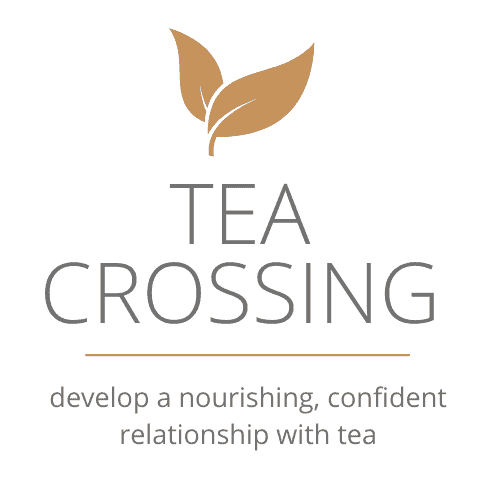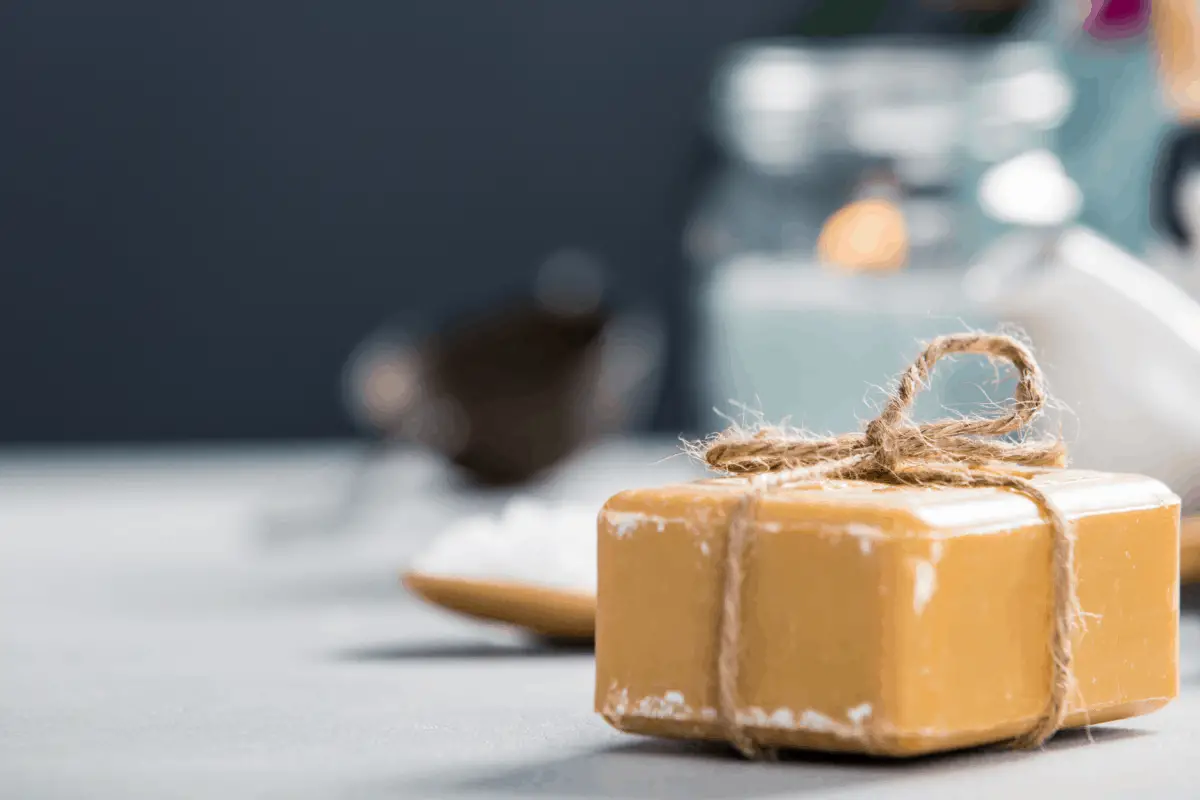None of us want our tea to feel like a punishment. If you have ever prepared for a nice sip of tea only to notice an odd taste such as soap, you are not alone. I’ve only experienced this once in my life, but once was enough! Let’s cover the reasons why what should be a delicious cup of tea comes out tasting like you washed your mouth out with soap. More importantly, let’s talk about how to avoid it.
Tea can taste like soap due to common added ingredients such as ginger, bergamot oil, lavender, and sweet orange. Fluoridated water, low quality tea leaves, high steeping temperature or long steeping time can also result in a soapy tasting tea.
Finding the exact cause of soapy tea may seem daunting, but the end result is very worth the effort.
Let’s delve into the various reasons your tea may taste soapy and look for solutions as well.
Which Tea Ingredients Can Cause a Soapy Taste?
Sometimes finding that soapy taste is a simple matter of checking the ingredient list.
Our taste buds react to certain flavors differently, and what tastes delicious to one person tastes bitter, burnt, and soapy to another.

Here are some common tea ingredients that are known to taste a bit soapy to some people:
- Ginger: Ginger is a common ingredient in tea, especially chai tea, but it contains aldehydes like cilantro does. Like with cilantro, those with a certain gene may taste soap when eating ginger.
- Bergamot oil: Bergamot oil is known to taste soapy when ingested in large amounts. It is also a common ingredient in many teas, especially Earl Gray.
- Lavender: Lavender has such a distinctly intense soap flavor that it can easily overwhelm the taste buds.
- Sweet orange: Sweet orange contains coriandrol, which some people claim has a soapy aftertaste.
- Water: Tap water often contains fluoride, which some say has a bitter taste to it. Using bottled mineral or purified water is the best option when brewing tea.
Can Our Brain Create a Soapy Tea Taste?
In addition to these ingredients, we also have to consider the power of our own brain.
Some scents, such as floral scents, are commonly used in soaps so our minds associate them with soap. Because of that association, any food or drink that contains those scents or tastes may cause your brain to simply think soap.
This is harder to pinpoint as everyone will have different associations based on their preferences and experiences.
While this may not be the top reason your tea tastes like soap, it’s an interesting one to consider.
“Bitterness can come across as a soapy flavor to some people.”
TEA CROSSING
How Does Steeping Length and Temperature Affect the Taste of Tea?
Brewing a cup of tea may seem like a piece of cake, but it is actually easy to make a mistake and ruin the whole experience.
Each type of tea has different requirements, and using the wrong temperature water, or steeping it for the wrong length of time can ruin the whole pot. As tempting as it may be to leave your tea brewing for just a little bit longer to get more flavor, it is not a good idea.
For the best results, follow the instructions given for each specific tea you use.
You may also need to experiment to find the results you are looking for, but generally speaking, steep your tea at a lower temperature and for a shorter time. Steeping tea at between 160-200 degrees Fahrenheit and for between 1 -5 minutes generally result in the best-tasting tea.
Refer to this table for common recommendations:
| Tea Type | Optimal Temperature | Recommended Duration |
| White tea | 160 – 190 degrees F | 2 – 5 minutes |
| Green tea | 160 – 180 degrees F | 1 – 3 minutes |
| Oolong tea | 185 – 205 degrees F | 2 – 6 minutes |
| Black tea | 200 – 212 degrees F | 3 – 5 minutes |
| Herbal tea | 200 – 212 degrees F | 5 – 7 minutes |
You will also want to read my article Seven Ways to Make Tea Less Bitter: Steep, Flavor, and More and Can You Steep Tea Bags in Cold Water?
How Does Washing Dishes Affect Tea Taste?
This one may seem like a no-brainer, but we are probably all guilty of washing a dish and just giving it a quick rinse before setting it to dry.
In addition, if you have little helpers working on the dishes, you might end up with a few tea cups left with soapy residue. Or, perhaps your dishwasher isn’t rinsing completely.
Whatever the reasons, the soap may have dried on your mug or teapot can be contributing to your soap tea.
If this seems like a possibility, take a play from a traditional British playbook and don’t use soap in your teapots at all.
How Does Growing and Harvesting Tea Affect the Taste?
Most people don’t often think about what happens to their tea before they get it, but they should.
Tea leaves go through a long process before they end up in your cup, and each step can change the taste of the final product.
You may be surprised how even the smallest change can alter your cup of tea, sometimes for the worse.
Let’s cover how growing and harvesting tea can result in a bitter or soapy taste.
“Ensuring a tea plant was not simply a bulk item can help cut down on a soapy taste.“
TEA CROSSING
Region and Atmospheric Conditions Affect the Taste
All tea leaves are planted as Camellia sinensis.
They are grown in a few different regions, and each region produces a different tasting tea. There are even variances within the same region.
Springtime means tea plants are starting to use the nutrients they have stored and begin sprouting. These leaves aren’t fully matured, so they are generally considered the best, and have the most natural sweetness.
Summer, however, is when tea plants can grow the highest number of leaves. These fully matured leaves can come across as a more bitter end product.
Processing the Leaves Affects the Taste
After leaves are harvested, they still have to be processed to get to tea leaves a consumer can enjoy.
The various methods a farmer chooses to process tea leaves can have a big effect on your cup of tea. The various methods make it possible for tea makers to really craft different flavor profiles.
Some teas need to be oxidized, which is essentially allowing the air to change the chemicals in the leaves, similar to how a cut apple turns brown when left out.
The level that a leaf is oxidized can change the flavor and intensity of the leaves.
Fixing is a way of heating the leaves to stop the oxidation process, and there are several different methods.
Leaves that are steamed will have a different flavor than roasted leaves, as will other methods of fixing tea leaves.
Quality vs. Quantity: Modern Demand Affects the Resulting Taste
Given how complicated the process is for growing and processing tea leaves, it is not difficult to see why close attention produces the best quality tea. With tea being as big of a commodity as it is around the world, many brands and farmers aren’t able to be as attentive as possible.
Tea leaves generally are better in the spring, but many farmers actually harvest in the summer, when leaves are more bitter, because they can produce larger amounts.
Harvesting machines end up chopping the leaves, making them only good for one brew and taking away natural sweetness.
Leaves that are plucked by hand are sweeter, but it is much more labor intensive than using machines.
Creating the streamlined processes really gives farmers, and tea brands, much more bang for their buck.
It also somewhat lessens the quality of the tea, giving it a more bitter and astringent flavor.
This bitterness can come across as a soapy flavor to some people.
“Purchasing high-quality leaves, steeping in clean water, and using a lower temperature along with shorter steeping time can help you to avoid a soapy flavor.”
TEA CROSSING
The Benefits of Drinking Tea
Your tea tastes like soap. Why would you even try to figure out the culprit in order to be able to enjoy that elusive, great cup of tea when there are so many other beverage options out there?
If the mastery of brewing a perfect cup, the hit of caffeine, and enjoying your preferred flavors don’t convince you to try a cup, then the health benefits may.
There is a lot of research currently being done on the health benefits of tea, and the results are promising.
We know that a single tea leaf contains many beneficial substances, such as:
- Vitamins
- Minerals
- Antioxidants
Thanks to some recent studies, we also now have a correlation with drinking tea and fewer instances of:
- Certain cancers
- Heart disease
- High blood pressure
As more research is done, expect even more reasons to enjoy your cup of tea.
In addition, purchasing high-quality leaves, steeping in clean water, and using a lower temperature along with shorter steeping time can help you to avoid a soapy flavor.

